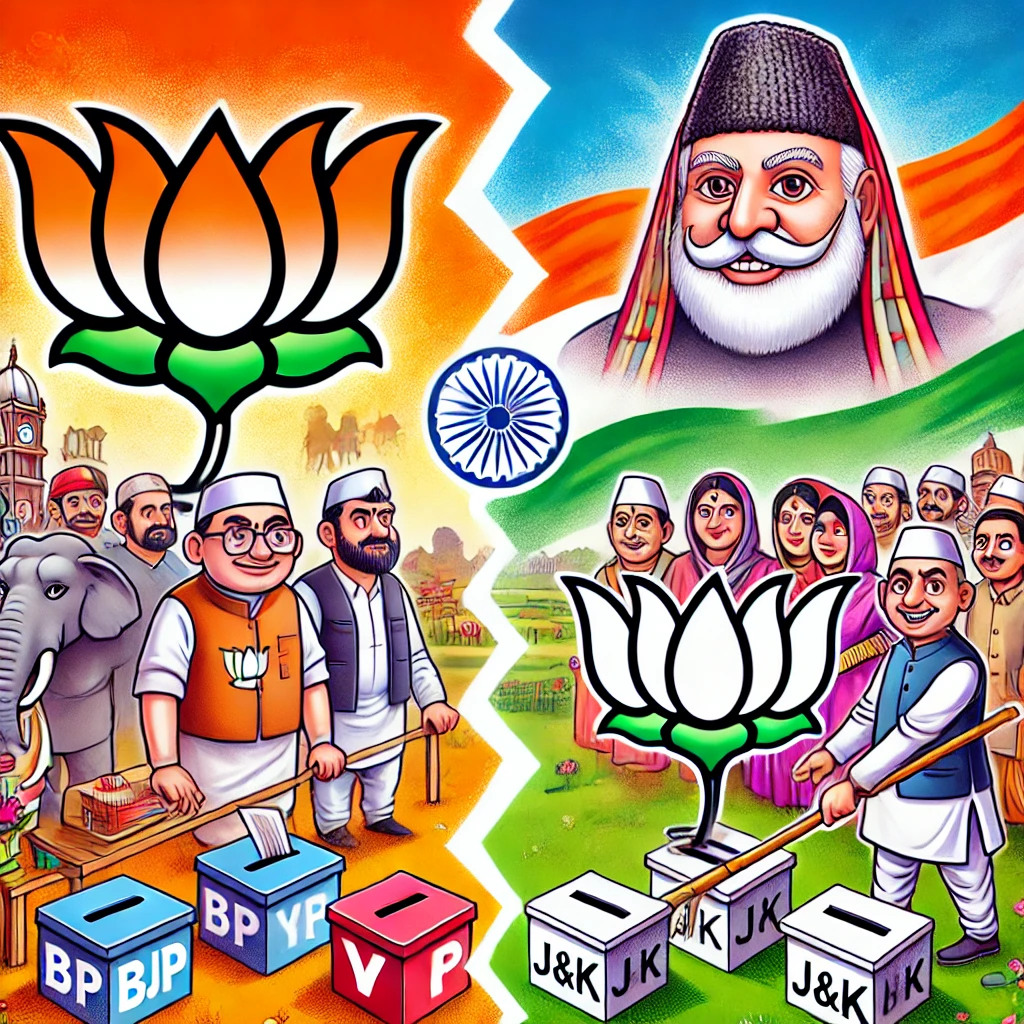The incident of arrest of the famous climate activist Sonam Wangchuk on the pretext of National Security Act (NSA), and his subsequent transfer to a jail outside Ladakh has caused a furor. To further fuel the controversy, the Director General of Police (DGP) in charge of Ladakh has made damaging and very doubtful assertions, which imply that Wangchuk is under investigation over allegations of links to Pakistan. Many have seen this as an indication that the administration is engaging in a vilification campaign to drown out a great voice of the movement of the region to constitutional protection and statehood.
It is not a foreign hand but the long existing, valid claims of the people of Ladakh. This is an overwhelmingly tribal Himalayan region, now a Union Territory (UT), whose residents are much concerned about the absence of an elected government and the security of their land and culture. The protests are centered on the call of the Statehood and the addition to the Sixth Schedule of the Indian Constitution. These are calls based on the desire to control their own affairs and to preserve their own identity and shaky ecology against outside commercial exploitation and demographic transformation.
The Agenda and the Allegation.
In their public statement, the DGP asserts they are continuing an investigation into a suspected connection between Wangchuk and Pakistan, citing previous visits to neighbouring nations, a visit to a Dawn media event in Pakistan, and connection with a recently arrested Pakistani Person of Interest, claimed to be reporting back across the border. Also, the authorities have also warned against violations of Foreign Contribution (Regulation) Act by SECMOL, the institute created by Wangchuk and already suspended its licence.
This is no accident; these allegations are all meant to have Wangchuk discredited as an anti-nationalist, so that the issue of failure on the part of the government to attend to the real needs of the Ladakhi people can be marginalized. These assertions were made after bloody confrontations broke out after a long calm hunger strike, which was spearheaded by Wangchuk, and this could be an indication that people were trying to get a scapegoat to the disturbance. The government and the Home Ministry have directly accused Wangchuk of inciting the violence as a result of his provocative lines like his allusions to the Arab Spring and the Gen Z protests in Nepal, even though he has repeatedly championed non-violent protest.
The fact that the National Security Act (NSA) was used against a highly recognized and admired environmentalist and educator of international status also highlights the heavy handed mode. The NSA enables the use of preventative detention over an extended period without charging the detained essentially taking the most vocal and visible critic off the stage.
The Real Demands of Ladakh
The agitation in Ladakh is not secessive and does not involve outside influence; it is the question of preservation of its identity.
- Statehood Ladakh became a UT without a legislature following the abrogation of Article 370. This has seen the administration being managed by bureaucrats and this has resulted to loss of political representation and local control of development and resources. Locals, even the Independent Lok Sabha MP of Ladakh, believe that their previous constitutional protection is gone, and they are left without protection. Secession is required in order to attain a democratic arrangement and self-governance.
- Sixth Schedule Inclusion: The sixth schedule of the Constitution provides special treatment of tribal areas within the northeast of India, where the Autonomous District Councils (ADCs) would have a lot of control on the land, forests, culture, and local governance. Most of the residents of Ladakh are tribal (more than 97 percent) and therefore, they fear that in the absence of such constitutional safeguard, their land, resources, and demographics balance would be distorted by foreign business interests and influx of outsiders.
The government continues to assert that a high-powered committee is negotiating with the Leh Apex Body and the Kargil Democratic Alliance, and that it has achieved some progress (such as raising the reservation of Scheduled Tribe and the status of local languages). But, the leaders of the protests claim that these measures are inadequate alternatives to the basic needs of statehood and constitutional independence.
A Pattern of Vilification
Sonam Wangchuk has been the central figure of the non-violent campaign whereby he has employed non-violent approaches, such as prolonged hunger strikes in extreme weather, to draw national and international attention to the Ladakh environmental and constitutional demands. The Pakistan links and FCRA violations allegations seem to be an intention to legitimise a large popular movement and its best-known leader.
This trick operates by exploiting the issue of national security by using this as a scapegoat to immediately turn the masses against an opposing voice. Rather than approaching the very real concerns of environmental protection and constitutional rights in a sensitive border area with seriousness, the government will do more to drive away the local population. Through their leaders, the people of Ladakh have continued to claim that their movement is patriotic and that it seeks to make the frontier of India stronger by providing well being to its people. Equally inconspicuous will be arresting Wangchuk and giving him a black eye through false charges: it will only widen the mistrust between the administration and the people.
The emphasis should be made back on the democracies of the Ladakhi people. The government must promptly respond to the call of the demand of Statehood and Sixth Schedule defense by engaging in constructive dialogue, instead of attempting to shut the mouth of the region by insisting on the fear of a foreign hand on its most influential and internationally acclaimed activist. The allegations have been justly labeled a witch hunt by Wangchuk supporters and leaders in the protest organizations because they are seeking to make a scapegoat of the unrest that broke out because of the lack of action on the part of the administration.








